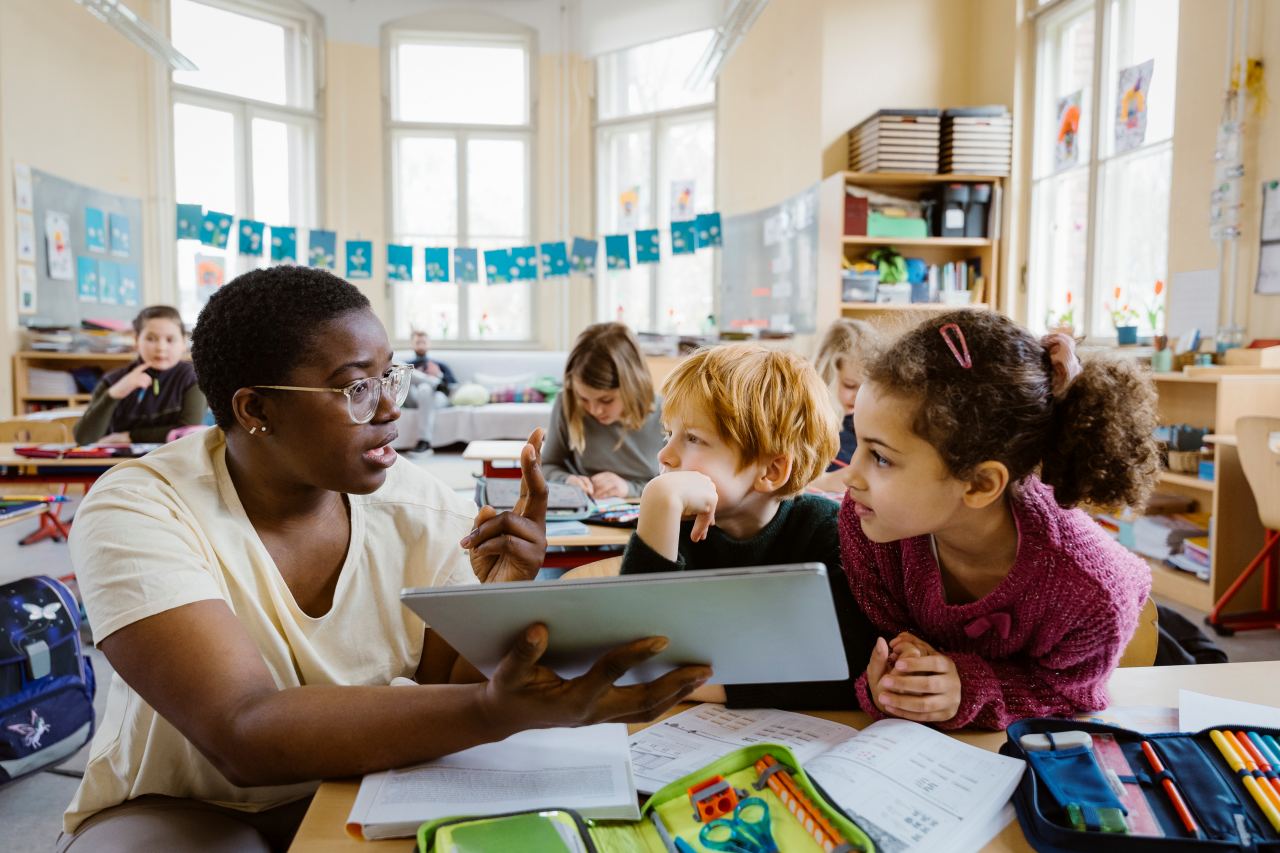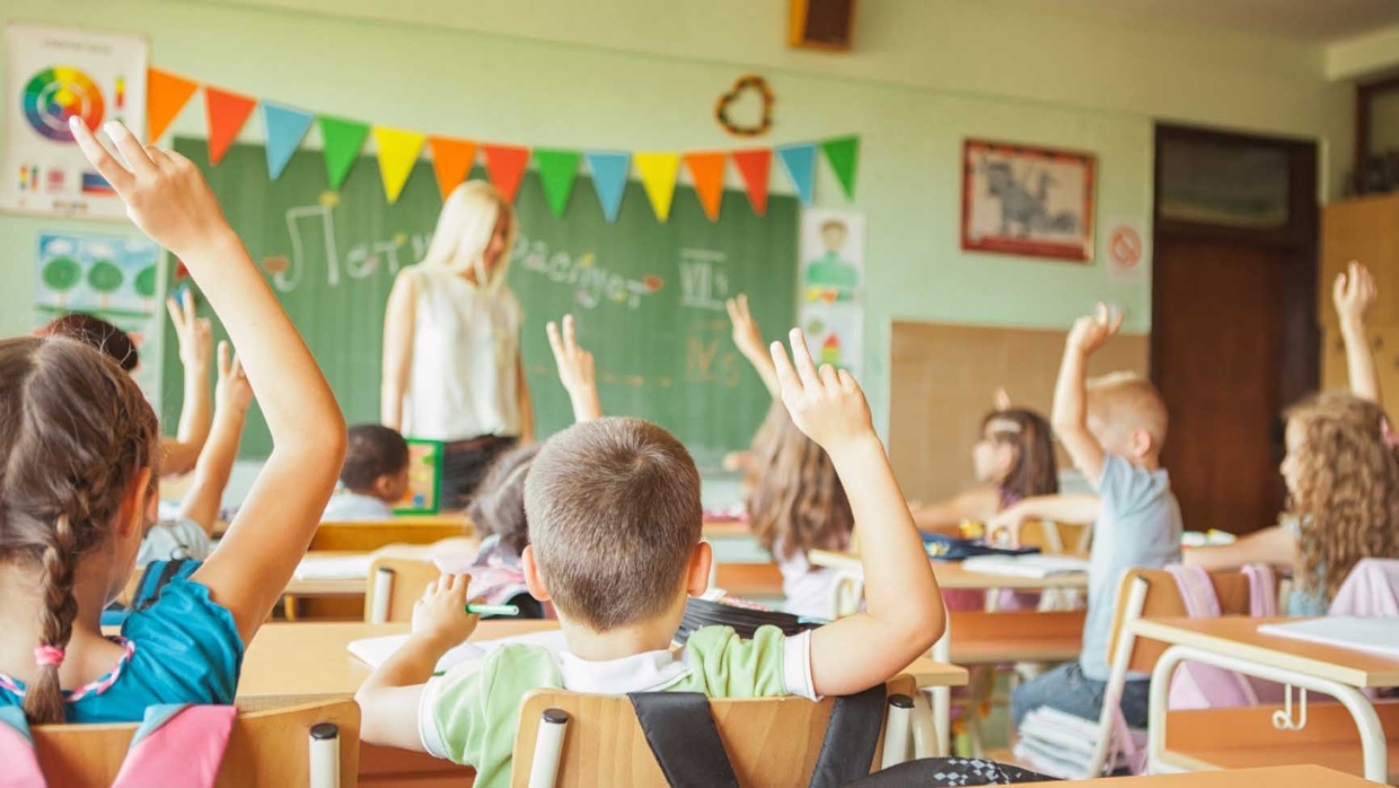Expert Tutors Offering Primary Science Tuition Singapore for All Grades
Expert Tutors Offering Primary Science Tuition Singapore for All Grades
Blog Article
Checking Out the Different Mentor Approaches in Main Science Education Today
Inquiry-based learning, hands-on experiments, and the combination of technology are redefining how instructors engage young minds. Furthermore, joint methods and set apart instruction are being used to provide to the diverse needs of trainees, enhancing both involvement and understanding.
Inquiry-Based Knowing
Inquiry-Based Understanding (IBL) is a pedagogical technique that encourages trainees to discover clinical ideas via questioning, examination, and hands-on experimentation. This approach emphasizes the function of pupils as active individuals in their knowing, advertising crucial reasoning and problem-solving skills. By involving with real-world inquiries, students end up being interested and inspired, which boosts their understanding of clinical concepts.
In IBL, teachers act as facilitators, assisting pupils as they browse their inquiries as opposed to delivering information directly. This student-centered method permits differentiation, fitting different finding out paces and styles. Students develop skills in developing hypotheses, developing experiments, and examining information, which are crucial for scientific proficiency.
Additionally, IBL promotes partnership among students, encouraging them to share findings and concepts. This cumulative questions advertises social skills and a sense of community within the classroom. Additionally, the process of questions urges durability, as pupils discover to accept failure as a tipping stone toward understanding.
Hands-On Experiments
Hands-on experiments are a vital part of reliable scientific research education and learning, matching the concepts of inquiry-based knowing. These experiments enable trainees to involve straight with scientific concepts, promoting a deeper understanding via experiential learning. By manipulating products and observing outcomes, young students can grasp abstract concepts in concrete means.
Such activities promote important reasoning and analytical abilities, as pupils assume outcomes, conduct experiments, and assess results. This process encourages them to ask concerns, improve their understanding, and develop a scientific state of mind. Additionally, hands-on experiments can be customized to varied knowing styles, ensuring that all trainees have the possibility to involve meaningfully with the content.
Additionally, hands-on experiments typically urge cooperation among peers, advertising team effort and interaction abilities. Operating in groups enables students to share ideas, talk about searchings for, and pick up from one an additional, which boosts their total instructional experience.
Including hands-on experiments right into the main scientific research curriculum not just improves the discovering setting but additionally grows a long-lasting rate of interest in scientific research. By actively getting involved in their education, students are more probable to create a passion for scientific questions that expands past the class.

Technology Combination
Integrating innovation into key science education has become progressively important in promoting trainee interaction and improving finding out results. Using electronic tools, such as interactive simulations, digital labs, and instructional software, supplies students with possibilities to discover scientific ideas in ingenious ways. These resources promote a deeper understanding of complex subjects by permitting learners to visualize and manipulate variables that would certainly be unwise in a conventional classroom setup.
In addition, innovation integration encourages personalized learning experiences. Trainees can progress at their very own speed, revisiting tough ideas through multimedia sources, which satisfy different understanding styles. This flexibility not just supports specific growth yet likewise grows a feeling of autonomy in students.
Additionally, innovation acts as a bridge to real-world science, connecting students with present study and professional payments. Accessibility to on-line databases and clinical journals widens students' point of views on clinical questions and fosters crucial believing abilities.
Collaborative Understanding
Collective understanding plays an important function in key scientific research education by promoting team effort and interaction skills among students. This technique urges students to function with each other, share knowledge, and participate in analytical, which improves their understanding of clinical principles. By participating in group tasks, students learn to articulate their ideas, listen to varied perspectives, he has a good point and work out services, all of which are important abilities in both scholastic and real-world contexts.

Research shows that collaborative understanding can lead to boosted inspiration and engagement in scientific research subjects, as students locate enjoyment in common experiences (primary science tuition Singapore). In addition, this approach prepares pupils for future collaborative ventures, outfitting them with the skills needed for effective team effort in greater education and expert atmospheres. Inevitably, embracing collective understanding in primary science education can dramatically enhance the learning experience and promote a much deeper understanding of scientific important site questions
Set Apart Guideline

Differentiated direction can materialize in various ways, such as differing the web content, procedures, or products of understanding. Instructors may utilize tiered assignments that give varying levels of complexity, allowing students to work at their respective readiness degrees. Furthermore, versatile grouping strategies can promote cooperation among trainees with different capabilities, promoting peer learning.
Evaluation plays a critical role in this strategy, as it informs instruction and assists educators recognize each pupil's distinct demands. Developmental assessments, such as monitorings and tests, can guide teachers in adjusting their methods to improve learning outcomes. primary science tuition Singapore. Eventually, by executing distinguished direction in main scientific research education and learning, instructors can grow a much more equitable and reliable discovering setting, encouraging all trainees to reach their full potential in understanding scientific phenomena
Final Thought
In recap, the diverse training techniques in primary scientific research education and learning, including inquiry-based discovering, hands-on experiments, innovation combination, joint discovering, and distinguished instruction, jointly add to a much more reliable understanding setting. These approaches promote critical reasoning, problem-solving skills, and a deeper comprehension of scientific ideas. By applying these strategies, teachers can develop helpful and appealing classrooms that resolve the diverse requirements of trainees, ultimately promoting a lifelong rate of interest in science and enhancing academic success.
Inquiry-Based Understanding (IBL) is an instructional approach that encourages pupils to discover clinical ideas through questioning, examination, and hands-on trial and error.Collaborative knowing plays a vital duty in main scientific research education by promoting synergy and interaction abilities among trainees.Study indicates that joint discovering can lead to boosted inspiration website link and interaction in scientific research topics, as trainees find pleasure in common experiences.In promoting an inclusive learning environment, distinguished direction arises as a key technique to fit the varied requirements and capabilities of trainees in key science education and learning. Eventually, by implementing set apart guideline in key scientific research education and learning, educators can cultivate an extra effective and fair learning environment, empowering all students to reach their complete capacity in recognizing scientific sensations.
Report this page